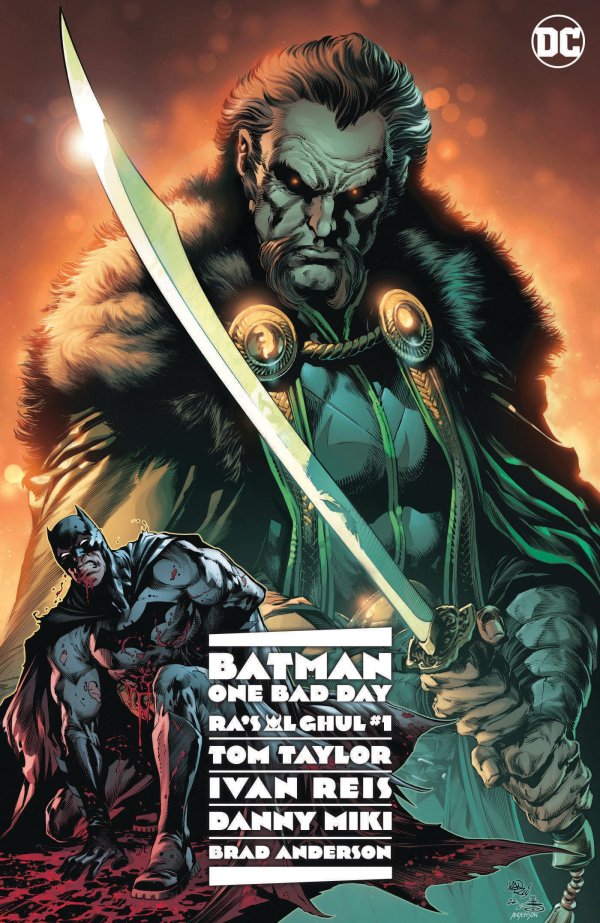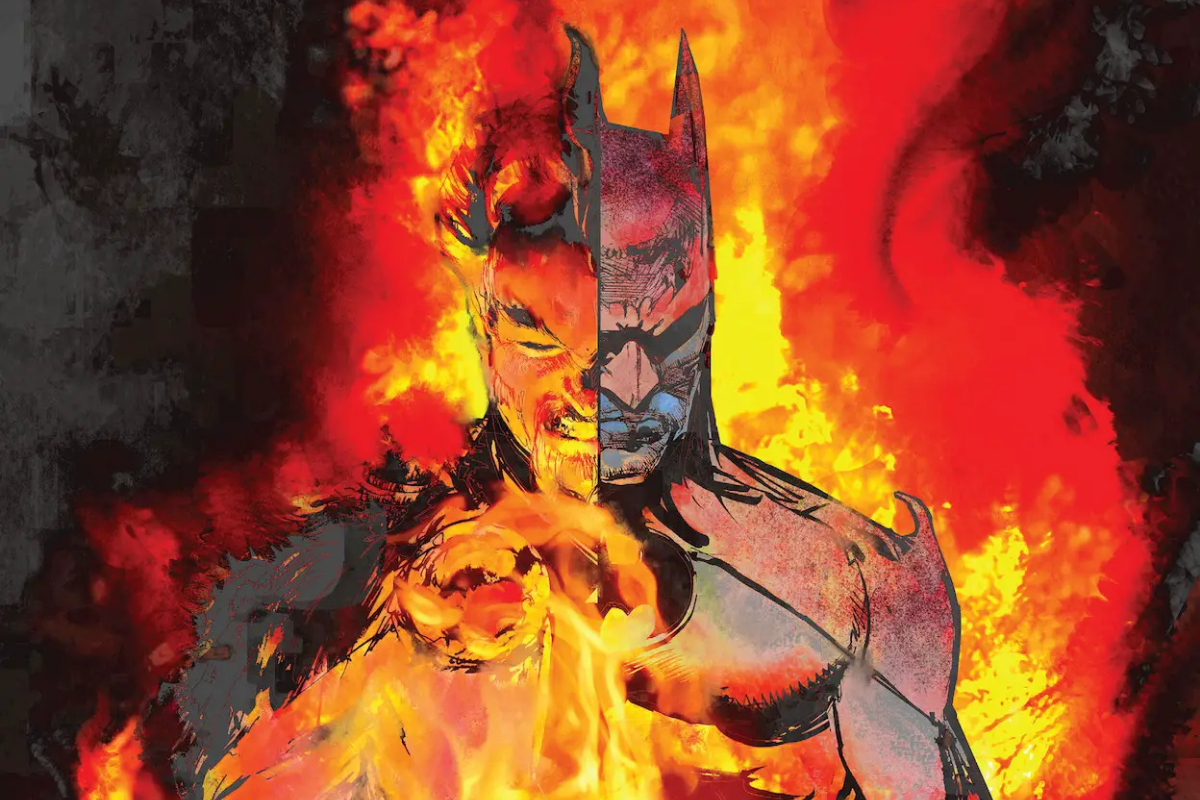Review: Batman One Bad Day: Ra’s Al Ghul #1

[Editor’s Note: This review may contain spoilers]
Writer: Tom Taylor
Pencils: Ivan Reis
Inks: Danny Miki
Colors: Brad Anderson
Letters: Wes Abbott
Reviewed by: Kelly Gaines
The Story
Written by Tom Taylor with pencils by Ivan Reis, Batman: One Bad Day: Ra’s Al Ghul #1 takes us into the backstory of one of Batman’s most influential villains. After all, without Ra’s, there is no Talia, no Damian, and no future of the Wayne bloodline. It’s ironic then that this story is all about the future — about legacy and how our actions today impact every moment to follow. We begin with seven-year-old Ra’s on the day his home is conquered by an unnamed enemy and his people are slaughtered indiscriminately. Ra’s manages to flee the carnage and seek shelter in an ancient forest, but he is pursued, emphasizing that this enemy is determined to destroy every last trace of his people, their entire legacy, as one.
Just as Ra’s is about to die, a pack of giant wolves descend on his attacker, ripping them to shreds. Ra’s never forgets how the forest, nature itself, saved his life. Nor does he forget the pack of big, hairy, good boys that fought for him when he could not fight for himself.
Fast forward about 693 years and Ra’s is a changed man. Born and reborn again and again, he wakes each time into a personal nightmare in which the natural world is crumbling to human greed, the lessons of the past are erased, and even his beloved daughter is unable to grasp the deep anguish he faces in this reality. Ra’s suffers alone. Just as his now nearly extinct wolf friends did, Ra’s is determined to fight for a planet that cannot fight for itself. He isn’t the type to embark on a good old fashioned “go-green” campaign and get a composter and some solar panels. In his eyes, the only way to effectively change the course of global warming and preserve Earth’s future is… drumroll please… murder.
Ra’s spends years planning to take out the heads of the world’s most harmful corporations and replace them with people who will change their unsustainable practices and place the future of the world over their shareholders and bottom lines. In the grand scheme of supervillain grand schemes, his mission isn’t evil. He’s not an agent of chaos hell-bent on driving people insane. He’s not concerned about settling petty scores or finding satisfaction in violence. The man is 700 years old. He has watched firsthand as the planet has been abused, overburdened, neglected, and left for dead by massive corporations and thoughtless private citizens. He’s had a front row seat to nature’s decline, and he has the power to do something that might really make a difference. Problem is, that something is murder, a something our dear Batman distinctly dislikes.
When three of the world’s most powerful CEOs die in quick succession, it captures Batman’s attention. Therein lies the set up for this One Bad Day: Ra’s believes murder for the sake of the greater good isn’t wrong. Batman believes that murder under any circumstance is inexcusable. Neither is willing to stand down.

Impression
It’s hard to disagree with Batman. The concept of “one bad day” is so familiar to fans; here’s the line between a hero and a villain, here’s where Bruce Wayne’s ideology and personal fortitude make Batman the costumed trauma victim we root for. Imagine my surprise when, only a handful of pages into this book, I found myself seriously considering Ra’s Al Ghul’s perspective and thinking, with some level of shame, that there might be something to his point. Murder is wrong, period, but here’s a man looking at the bigger picture in a way so realistic and personal it’s hard to ignore. Never mind that with 700 years of firsthand experience to lean on, Al Ghul might actually have an understanding of truths that sit in the Bat’s blind spot.
This book is one worth reflecting on. It plays in the sandbox of one of humanity’s most ancient dilemmas: do the lives of the few outweigh the lives of the many? Who has the right to decide? Obviously, the knee-jerk reaction is to side with our guy, Batman. What about the families of those killed? What about the innocent employees and bystanders caught in the crosshairs? For Batman, it’s a simple answer. For readers, like myself, it’s much more complicated. Ra’s has lived through massive environmental change, he can see our trajectory better than perhaps anyone else. Who is Batman to say he’s wrong? This isn’t really about revenge. Batman’s mission is protecting life, and in a sense, so is Ra’s Al Ghul’s — preserving it and ensuring it, no matter the cost.
Verdict
Between emotionally poignant artwork and a story that feels straight from the mind of Ursula K. Le Guin, Batman: One Bad Day: Ra’s Al Ghul #1 is a stand out Batman book. We’re not just compelled to empathize with the villain because he lived through something terrible, we’re compelled to consider that his actions may guarantee humanity a brighter future. That’s a tough pill to swallow, but comics that cause readers to think deeply about morality and the world we create are the beating heart of superhero narratives. I certainly recommend this book, if not for the creative team’s brilliant work, then for the dialogue it creates. As fans of heroes and of justice, what is the right answer? When the planet faces extinction, should the definition of good and evil shift? For me, the jury is still out.
Score: 5/5
